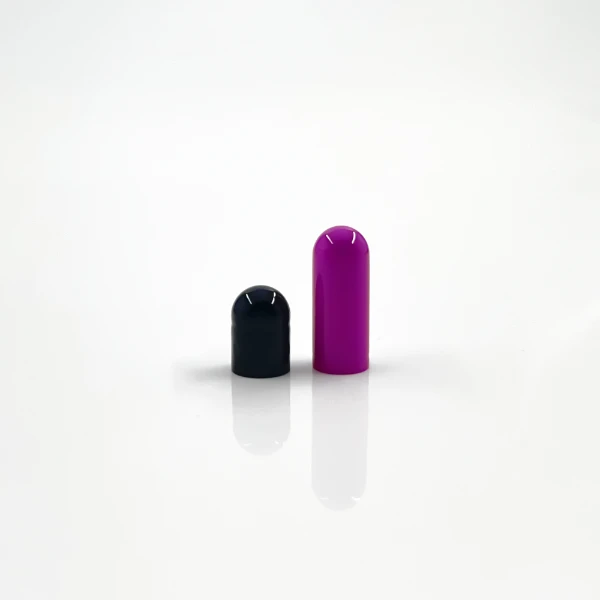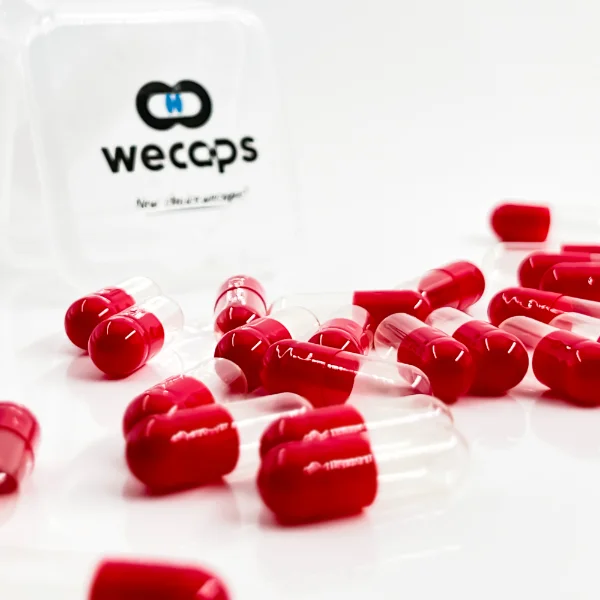Manufacturing and Quality Control of Empty Enteric Coated Capsules
Article source:Wecaps Mar 07, 2024 1159
Enteric coated capsules serve as reliable and effective delivery systems for a variety of drugs. These capsules are designed to withstand the acidic environment of the stomach and dissolve in the alkaline environment of the small intestine, ensuring targeted drug release. In this blog post, Wecaps will explore the manufacturing process of enteric coated capsules and the importance of quality control measures to ensure their safety and effectiveness.
Understanding the Manufacturing Process:
1. Empty Enteric Coated Capsules Production:
Empty enteric coated capsule production refers to the manufacturing process of producing capsules specifically designed to withstand the acidic environment of the stomach and dissolve in the alkaline environment of the intestines. Typically based on gelatin or vegetarian materials, which are then coated with special enteric polymers to ensure delayed release and to protect the contents from stomach acids.
2. Enteric Coating Application:
Once the capsules are formed, the next step is to apply the enteric coating. Enteric coatings are designed to protect the medication from the acidic environment of the stomach, preventing premature release. The coating is typically made from polymers such as cellulose acetate phthalate or hydroxypropyl methylcellulose phthalate, which are resistant to gastric acid but dissolve in the alkaline environment of the small intestine.
3. Drying and Inspection:
After the enteric coating is applied, the capsules undergo a drying process to remove any excess moisture. This step is crucial to ensure the stability and integrity of the capsules. Following drying, the capsules undergo a thorough inspection to detect any defects or imperfections that may affect their performance.

Importance of Quality Control:
1. Raw Material Testing:
The quality control process begins with rigorous testing of the raw materials used in capsule production. This includes visual inspection, physical and chemical analysis, dissolution testing and microbiological examination. Similarly, the enteric coating materials are tested for their chemical composition, solubility, and compatibility with the medication.
2. In-process Testing:
During the manufacturing process, various in-process tests are conducted to monitor critical parameters such as capsule weight, dimensions, and mechanical strength. These tests help identify any deviations from the desired specifications and allow for timely adjustments to maintain product quality.
3. Finished Product Testing:
Once the capsules are manufactured, they undergo comprehensive testing to ensure their quality and performance. This includes dissolution testing to verify the enteric coating's effectiveness, stability testing to assess the capsules' shelf life, and microbiological testing to ensure they are free from any harmful contaminants.
4. Compliance with Regulatory Standards:
Manufacturers of empty enteric coated capsules must adhere to strict regulatory standards, such as Good Manufacturing Practices (GMP) and International Organization for Standardization (ISO) guidelines. These standards ensure that the manufacturing process is well-documented, controlled, and consistently produces capsules of high quality.
By following strict production protocols and implementing strict quality control measures, enteric coated capsules manufacturer can ensure the safety, effectiveness and reliability of these capsules. Ultimately helping to increase the overall effectiveness of the drug and improve patient outcomes. Wecaps always insists on quality first In principle, we professionally provide various high-quality empty capsule customization services, which are worthy of your trust!

Frequently Asked Questions
1. What are enteric coated capsules and why are they used?
Enteric coated capsules are pharmaceutical capsules that have a special coating designed to resist the acidic environment of the stomach. They are used to protect sensitive drugs from degradation in the stomach and to ensure targeted release in the intestines.
2. What are the challenges in manufacturing enteric coated capsules?
Some challenges in manufacturing enteric coated capsules include achieving consistent coating thickness, ensuring uniformity across batches, preventing coating defects like cracking or peeling, and maintaining the stability and integrity of the capsules during storage and transportation.
3. How are enteric coated capsules tested for quality assurance?
Included are dissolution testing to evaluate drug release under simulated intestinal conditions, visual inspection for defects, weight change testing, and stability testing to evaluate capsule performance over time.





